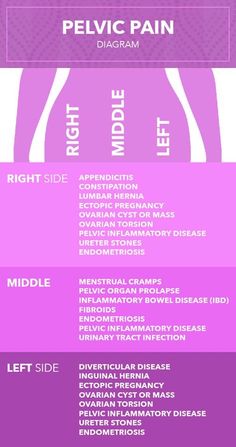Causes of Pelvic Pain

A doctor can help you find the cause of your pelvic pain. Symptoms of pelvic pain can be related to your menstrual cycle, urination, or sexual activity. They can be sharp, dull, or even related to sleep or eating. If you’re experiencing frequent or persistent pelvic pain, it’s important to consult with a healthcare provider. Listed below are some of the most common causes of pelvic discomfort.
Pelvic pain may be a sign of urinary tract or digestive tract problems. It could also be due to pelvic congestion syndrome, which is related to previous pelvic surgery. In addition to medical treatments, physical therapy and rest may help to reduce muscle pain. In severe cases, a hysterectomy may be performed. While a hysterectomy is an option for severe pelvic pain, it is only recommended for elderly women with severe symptoms.
Your doctor will determine whether the cause of your pelvic pain is physical, emotional, or psychological. Sometimes pelvic pain is caused by an injury or a coping mechanism. Depending on the cause, treatment may include psychotherapy, dietary changes, environmental changes, and physical therapy. It is extremely important to see a doctor as soon as you feel any pain in the pelvic area. This will help you avoid symptoms and ensure a full recovery.
Your doctor will need to determine if you have a sexually transmitted disease. Although pelvic pain is not the result of an infection, it may be a sign of pelvic inflammatory disease. The most common STDs are chlamydia and gonorrhea. Antibiotics are only available to treat mild forms of these infections, but some strains have become resistant to them. If you are suffering from pain and suspect you have a sexually transmitted disease, seek medical help as soon as possible and get advice from a health website CTH.
Symptoms of pelvic pain vary from person to person. The pain may be intermittent or constant and may be a sign of a sexually transmitted infection. If you are suffering from asexual relapse, you may have a genital infection causing pain in the pelvic area. Over the next few months, your doctor will help you determine the cause of your pelvic pain and prescribe treatment.

Your doctor may perform a physical exam and run tests to rule out any underlying medical conditions. If you have pelvic pain, it is important to seek medical help as soon as possible. Early treatment is important to prevent chronic pelvic pain from becoming an inflammatory condition. If you are diagnosed with a sexually transmitted disease, you should consult a doctor for further examination. Often you will need to get an antibiotic that will be effective in treating the infection.
In some cases, pelvic pain can be a sign of a sexually transmitted disease. However, pelvic pain is not always caused by an STD. Often, the pain is the result of an underlying inflammatory condition. Some STDs are caused by an injury or an infection. If you think that you may have a pelvic inflammatory disorder, you should contact your doctor and get a diagnosis. Your doctor will want to know if you’ve been suffering from pelvic pain for a long time.
If your pain is chronic, you should see a doctor. Your doctor will be able to diagnose the cause of your pelvic pain. If it’s a psychological issue, a medical professional can perform a sexually transmitted disease test to diagnose the cause of the pain. If you have chronic pain, it’s important to speak to your doctor so that you can discuss treatment options. In many cases, a doctor will prescribe hormones or birth control pills for a variety of reasons.
The intensity of your pelvic pain is not related to the severity of your problem. If you’re experiencing pain because of a traumatic event, it’s important to seek medical attention as soon as possible. Identifying the cause can help you avoid chronic pelvic pain. A doctor can also suggest alternative treatments. Various medicines may help to treat your pain. In some cases, medications may be needed. Some types of medicines may help alleviate the pain and increase fertility.
If the pain is a symptom of another illness, it may be a sign of a different problem. The cause of your pelvic pain can be related to other organs. A pelvic swab will show whether it is coming from an intestinal infection or a kidney problem. Other types of medical problems can also cause pain in the pelvic region. If you think you have a disorder that affects your reproductive system, your doctor may recommend the appropriate treatment.


